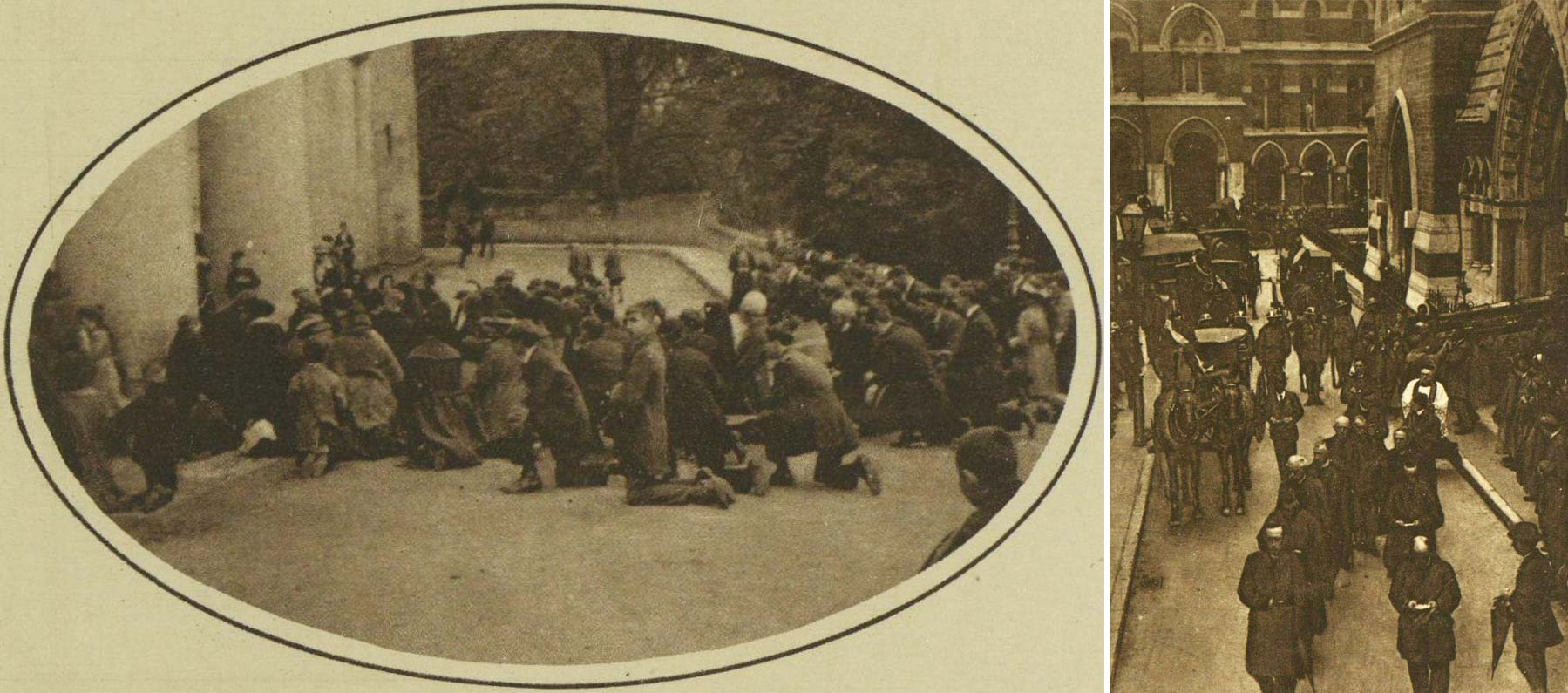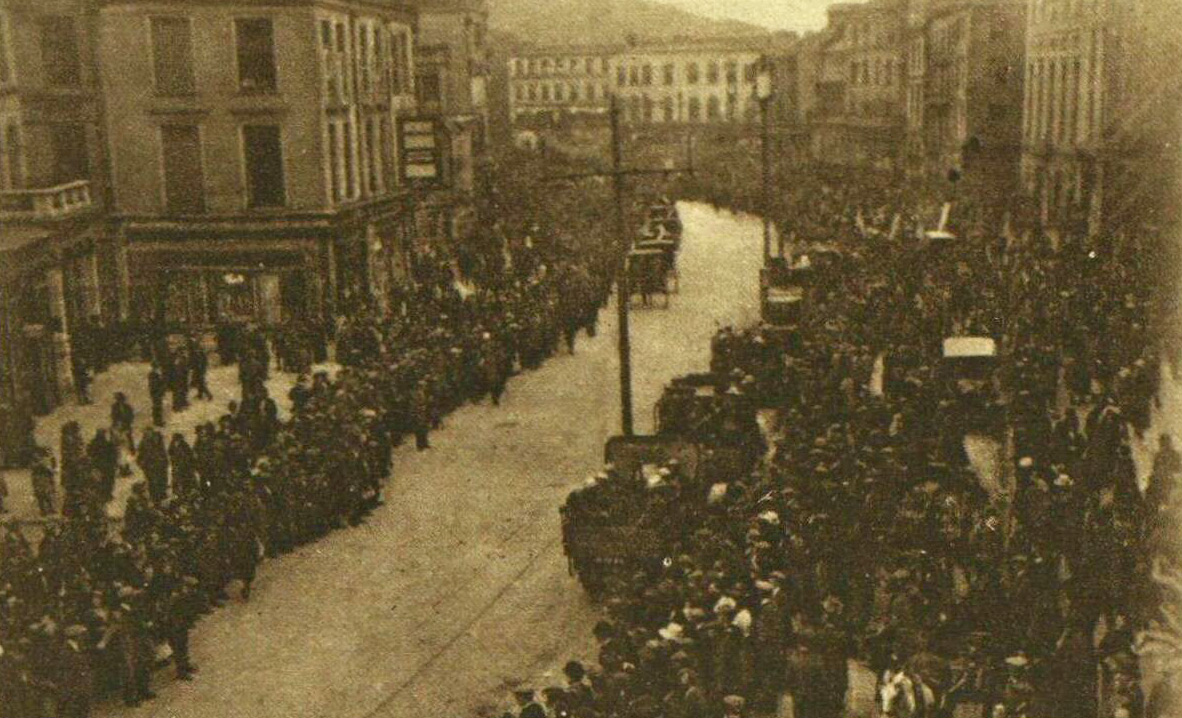Hunger striker Michael Fitzgerald dies in Cork Gaol
Cork, 20 October 1920 - A military inquest into the death of Michael Fitzgerald, who had been on hunger strike in Cork Gaol, has concluded that he killed himself.
Fitzgerald, one of 11 hunger strikers in Cork Gaol, died on 17 October after 67 days without food, taking only water during this time. The judgement of the military inquest stated that Fitzgerald was of ‘sound mind and deliberately caused his own existence to end and did feloniously kill himself’.
In evidence given to the inquiry, overseen by three military officers at Victoria Baracks in Cork, the governor of the gaol said that the deceased had been in prison awaiting trial on a charge of complicity in the murder of Private William Jones in Fermoy in September 1919. He commenced hunger on 11 August this year in protest at not being brought to trial.
The governor testified that Fitzgerald had declined all medical treatment from doctors up to the day before his death and stated that he did not believe that Fitzgerald’s attitude to the hunger strike had been shaped by visitors to the prison.
A prison doctor gave evidence that he had recommended Fitzgerald's release on medical grounds in early September 1920, but had not received an answer from the prison authorities.

Left: sympathisers reciting the rosary outside Cork Gaol after the news of Michael Fitzgerald was announced. Right: the body of Michael Fitzgerald being carried out of SS Peter and Paul’s Church (Images: Illustrated London News, 30 October 1920)
As news of Fitzgerald’s death spread, black mourning flags were hung in many parts of the country. The Cork Lord Mayor, Terence MacSwiney, who is on hunger strike in Brixton, sent the following message to the remaining hunger strikers in Cork: ‘No tears, but joy, for our comrade who was ready to meet his God and die for his country. He has joined the immortals and will be remembered forever.’
Despite this wave of sympathy for Fitzgerald, the British government’s policy towards the treatment of hunger strikers is not expected to change. Speaking in the House of Commons yesterday, Sir Hamar Greenwood, Chief Secretary of Ireland, said that: ‘The policy of the government regarding the other prisoners now on hunger strike has been repeatedly announced, namely, that convicted men, and men awaiting trial, on direct evidence of serious offences will not be permitted to obtain their release by hunger striking, and this policy remains unchanged. All the men now on hunger strike come within this category.
Fitzgerald’s funeral
Michael Fitzgerald's funeral will take place today after
Requiem High Mass in Fermoy Church. Fitzgerald’s remains
arrived in Fermoy yesterday, having been held for the night in SS
Peter and Paul’s Church in Cork City.
The military authorities have taken steps to ensure that Fitzgerald’s funeral will not be an occasion for a major republican demonstration. During the requiem mass for the deceased at SS Peter and Paul’s Church on 19 October, a scene of some commotion was caused by the arrival of an armed officer and four soldiers who handed over an instruction from Dublin Castle that not more than 100 people would be permitted to take part in the funeral procession and that they would not be allowed to march in military formation. Canon O’Leary conveyed the order from the pulpit and expressed the hope that it would be carried out.
Michael Fitzgerald was Commandant of the 1st battalion, Cork No. 2 Brigade of the IRA.
[Editor's note: This is an article from Century Ireland, a fortnightly online newspaper, written from the perspective of a journalist 100 years ago, based on news reports of the time.]





















